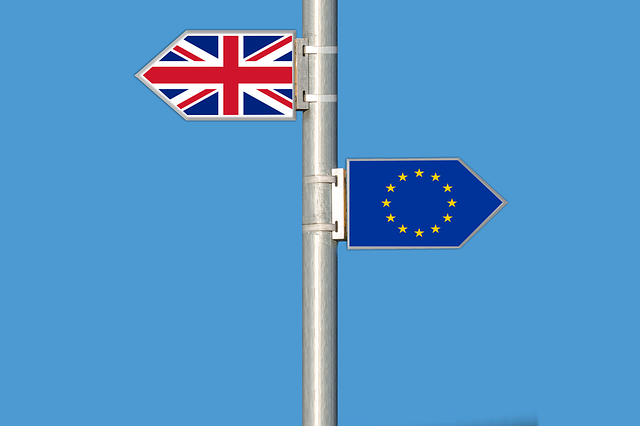Alison Ryan, London Office, Bord Bia – Irish Food Board
Key events this week:
Theresa May has written to the EU to request a further delay to Brexit until 30 June. The letter also proposes that if UK MPs agree on a withdrawal deal in the team, the UK should be able to leave before European Parliamentary elections on 23 May. She also said the UK would prepare to field candidates in those elections, in case they do no reach an agreement. However, according to a senior EU source, European Council President Donald Tusk is proposing to offer the UK as 12-month “flexible” extension to its Brexit date. His plan would allow the UK to leave sooner if Parliament ratifies a bill.
Theresa May enter cross-party discussions with Labour leader Jeremy Corbyn on Wednesday, following on from a seven-hour Cabinet meeting on Tuesday. The prime minister said she would seek a cross-party compromise in order to break the Brexit impasse. The two-hour discussions yesterday between the party leaders were hailed as “constructive”. The two sides agreed, however, to appoint negotiating teams for a full day of discussions on Thursday and have continued the talks into Friday. After Thursday’s discussions, Mr. Corbyn sends a note to Labours MPs outlining that agenda items were customs arrangements, single market alignment including rights and protections, agencies and programmes, internal security, legal underpinning to any agreements and confirmatory vote. Theresa May is expected to write to Jeremy Corbyn to set out the government’s offer on Brexit on Friday.
In an indication of how far Downing Street is willing to go to win Labour support to get a deal through, the attorney-general, Geoffrey Cox, said the UK could sign up to a membership of a customs union with the EU on a temporary basis. An EU customs union has been Mr. Corbyn’s central Brexit demand. Until convening these talk with Labour, Mrs. May has repeatedly ruled out a custom union membership.
A cross-party group of MPs, led by Labour MP Yvette Cooper, pushed through an emergency legislative bill late on Wednesday night that would force Theresa May to seek another delay to the UK’s Brexit date in order to avoid a no-deal Brexit. The legislation, which was debated and voted on in less than six hours, was approved by just a single vote. It would also give parliament the power to force Mrs. May to consult with MPs over how long an extension of the Article 50 divorce process she should seek. The emergency legislation, which passed the Commons 313 to 312, was debated in the House of Lords on Thursday, where many pro-Brexit Peers attempted to slow down the process by delivering long speeches designed to eat up debating time. The bill will now be voted on in the House of Lord on Monday 8 April.
Following a second round of indicative votes on Monday evening, MPs failed again to reach a majority on the four options put forward as alternatives to the Brexit deal. A proposal by Conservative Ken Clarke for a customs union fell just 12 votes short of commanding a majority. It secured 273 votes in favour, 276 against. The so-called Norway Model failed by 282 votes to 261. The two other options included a proposal to prevent any withdrawal agreement from being ratified without a public vote, proposed by Labour’s Peter Kyle. It lost by 292 votes to 280 votes. The other called for the UK to seek an extension to Article 50 two days before a no-deal Brexit. It lost with 292 against and 191 votes for.
Two Conservative ministers resigned on Wednesday in protest of Mrs. May’s decision to seek Labour support to help win House of Commons backing for a Brexit deal, making the obstacles facing Mrs. May’s efforts for a common front clear.
German Chancellor Angela Merkel was in Dublin on Thursday for talks with Ireland’s Taoiseach Leo Varadkar.
Implications for Irish food & drink companies:
As it stands, the UK is still set to leave the EU on April 12 without a deal. The indicative votes on Monday did not signal a majority for any alternative solution to the Withdrawal Deal in the House of Parliament and Yvette Cooper’s bill still needs to pass through the House of Lords and be approved by the EU before it would become law. Therefore, Irish companies should continue to prepare for the possibility of a no deal Brexit occurring this day next week. Bord Bia’s support programmes can be found here.
Looking ahead:
• Yvette Cooper’s Brexit delay bill is to be voted on in the House of Lord on Monday.
• If Theresa May cannot strike a deal with Labour, she will hold another series of indicative votes in the Commons, before the EU Summit next Wednesday.
• An emergency EU summit is taking place on Wednesday, April 10.
• The UK is due to leave the EU on April 12.
• European Parliamentary elections take place on the 23 – 26 May.






